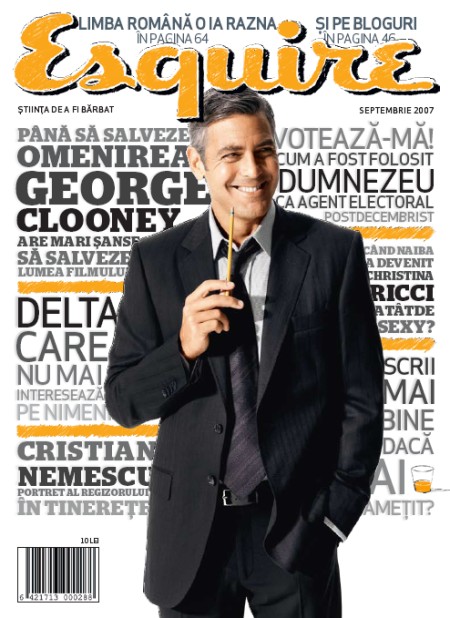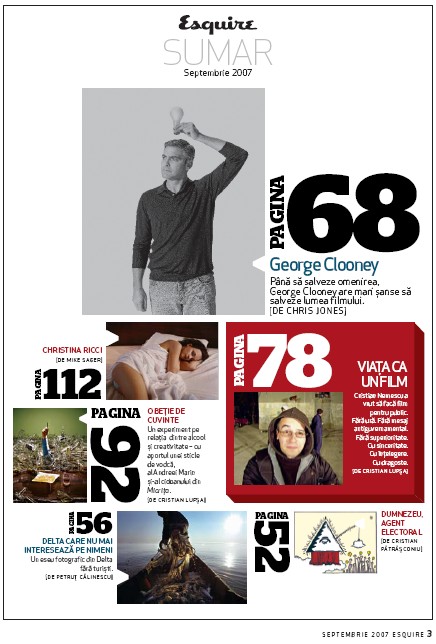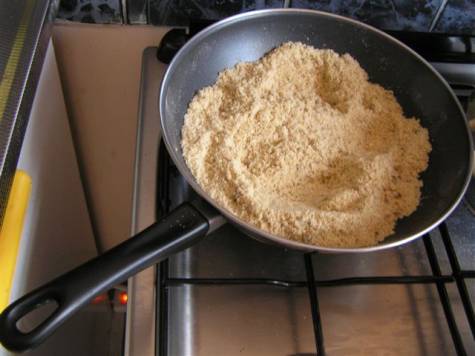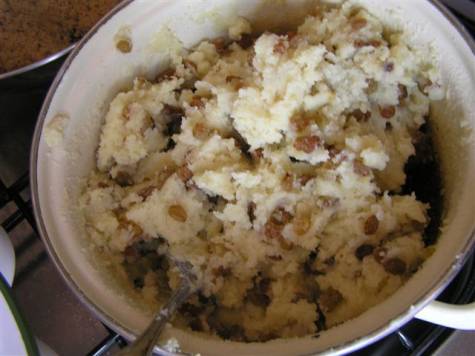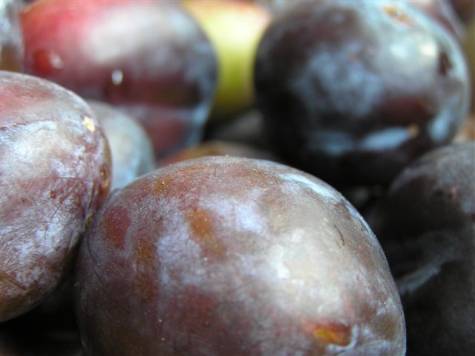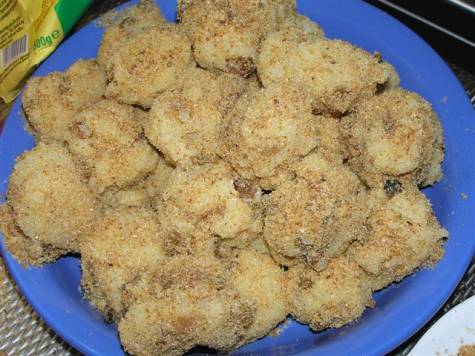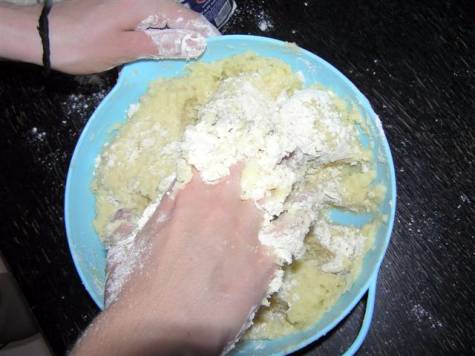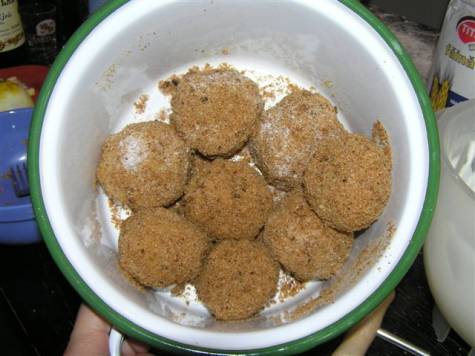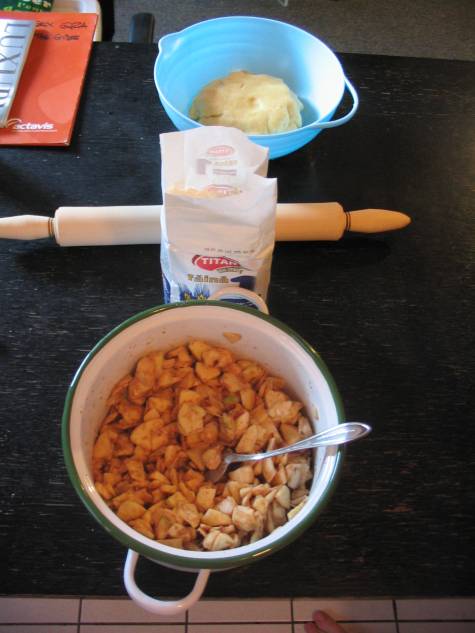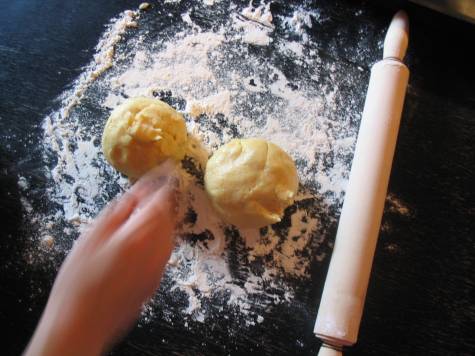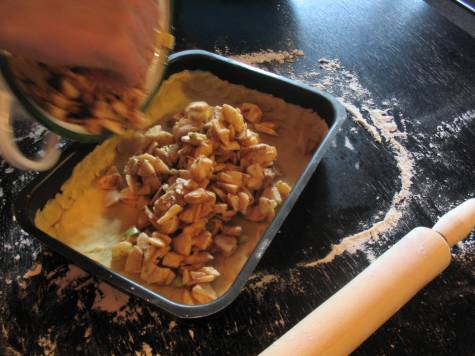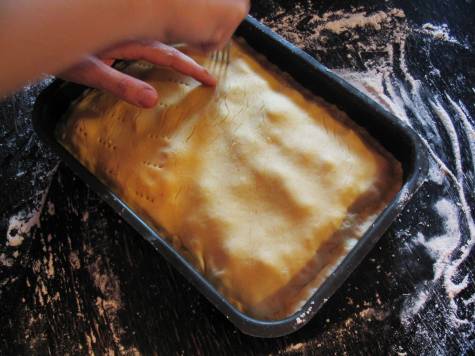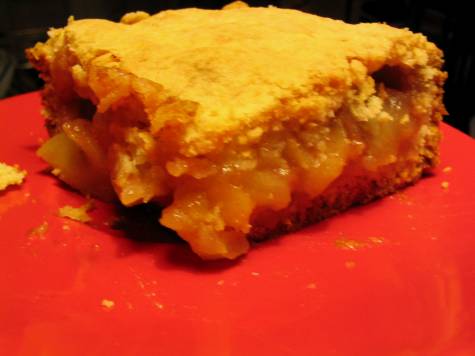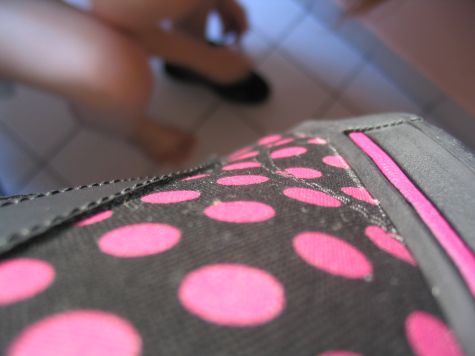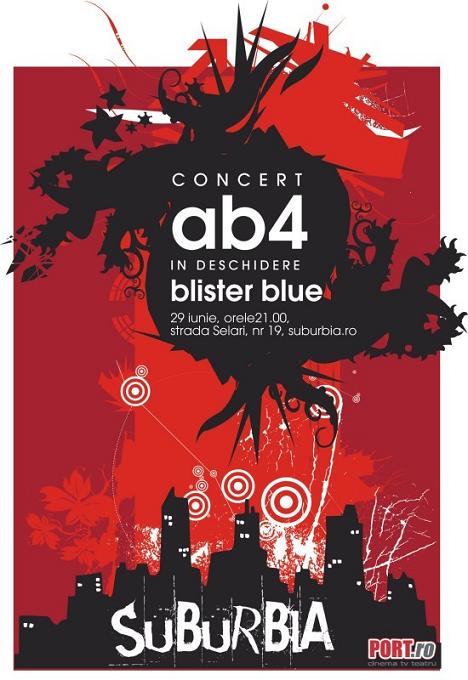It could have been the beer. Sometimes it is the beer. Sometimes beer is just one’s cover.
I don’t keep many (of my own) secrets to myself and I believe the one’s that have not surfaced are hidden because I haven’t found an understandable way to put them out there. To me, life is a collection of stories and the only way I can function in it is to tell the stories of others and the stories of myself. These keep me grounded, they keep my eyes open and they teach me about other people and about myself.
Listening to myself last night as I talked about the need to tell stories (something intimately linked to a pretty consuming project I’m working on) I realized how much I depend on them for strength. Although the coherence of my argument still gives me chills, it’s something I’ve sensed for a while. I came across the text below on Monday when I picked up a package of stuff John sent from the States. Apart from the crazy pink dots, the box contained my master’s project (written in 2005). In turn, the project contained a self-evaluation of the time I spent in journalism graduate school–something that reads to me like the draft of a mission statement.
I hope I’m still walking this path.
As I get ready to wrap up the most incredible two years of my life, I can’t resist the temptation to look back. It was a Missouri summer day – the kind that takes your breath away and draws sweat from your body like a water pump – when I exited the St. Louis airport. I was tired, confused, scared and feeling like I had never written a lead, interviewed a human being or ever published a story.
In those first days in America I realized that the moment you switch languages, the past takes a back seat and it all begins… again.
Twenty months later I remain tired, but I am no longer scared or confused. I fought so many battles with myself and my journalism that I stopped counting the falls and the comebacks. I would be cheating and holding back if I took the standard approach of saying the master’s program helped me grow as a journalist. Yes, of course it did. But my most impressive growth exceeds my chosen profession.
During my time in Columbia I grew as a human being, learning so much about myself and the world around me that my previous knowledge resembled an archaic stable next to a modern farmhouse. The tool I used to understand myself and the world I lived in was journalism. Journalism allowed me to become more confident, discover new things, embrace people, tell stories, mature, love, cry, smile, and understand.
As I leave the Missouri School of Journalism, I know stories are born within me and they are in my heart and in my brain as much as they are in my notes. My fights, pains, joys, experiences and quirks bring as much to a written report as a wonderful quote or a scene does.
Reporting and writing cover stories for the NewSunday Missourian allowed me to articulate what I always felt deep inside: a story is as much about me as it is about the world I talk about. This is not about ego; it’s what the Missourian’s executive editor Tom Warhover called “the place of sentimentality in a news article.” Sentimentality is the sadness of the character as much as it is the struggle of the writer to bring that sadness to the page. Sentimentality is the perfect quote that captures a person as much as it is the time spent to get it. Sentimentality is not being able to break-up with your story – because if you do, the story is dead no matter how alive you think your characters make it.
If two years ago I was scared to challenge the idea of hard news as manifested in a city council story or a police brief, I am now able to make a clean break from it. Being a journalist means different things to different people. The city council story is not my journalism because I need to grow while working on a story. I need to grow not only in terms of acquiring information, but in terms of becoming a better person. Telling the stories of people trying to slow down their lives or chronicling the journey of a Pakistani man to find God as part of a story package on the struggles within Islam, have allowed me understand my place in the world, reevaluate myself as a human being and challenge my thoughts on journalism and life itself.
Not all stories will be as challenging and as rich in meaning but I know that if I keep looking for stories as large as the world itself, I will at least remain in the market of ideas. What I get at this market can make people’s lives richer. The more we understand of the world, the better we’ll feel in it. If all journalists jump on the breaking news and huddle like sheep at the place of impact we’ll be too caught in the moment to remember it means little in a larger context.
I feel my place is outside the moment. To make a parallel with time, if one’s journalism is the minute, mine is the hour that minute belongs to.
I loved stories since I was a little boy and to me they were always were more than just what the text said. When I was five, the story of the prince rescuing the kingdom from the hands of the evil dragon was the fight of the individual against the onslaught of hardship. Now, at 24, the struggle of Muslims to marginalize references to violence when it comes to their faith is every person’s challenge to defeat preconceived ideas and try to engage in dialogue. The spiritual growth of a person has always fascinated me. The development of ideas, skills, beliefs are at the core of our lives and they determine our direction and ultimately, our legacy.
